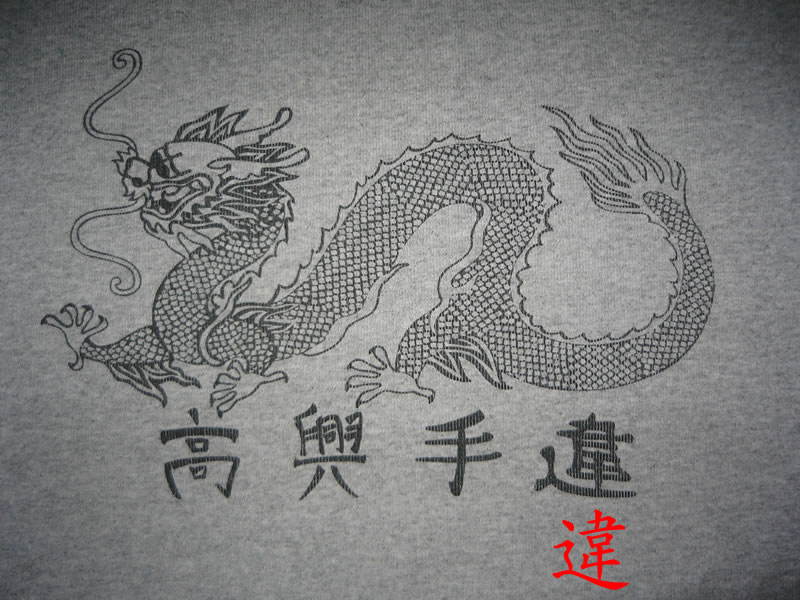Unlike tattoos, t-shirts are less permanent. They can be tossed away quickly to discard the embarrassment.
Yet, for that brief moment of hearing people quietly discussing what is on your t-shirt is still quite uncomfortable. Fearing the few minutes of uncertainly will come back to haunt you, it lingers in the back of your mind.

高興手違, what does this phrase mean?
高 is “high, elevated”, 興 means “thrive, prosper”, and their compound means “happy, cheerful, willing” in Chinese. 手 is “hand”, 違 means “violation, disobey”, and together, they mean “mistake, blunder” in Japanese, as in手違い (or てちがい).
“Happy [hand] violation”, is it some kind of idiom? Or a sexual euphuism for “happy ending” at one those dodgy massage parlors, which always advertise in the back of free publications? (Note: the missing dot in 違, perhaps the client is not done yet.)
Or it is just complete gibberish.

Yet, for that brief moment of hearing people quietly discussing what is on your t-shirt is still quite uncomfortable. Fearing the few minutes of uncertainly will come back to haunt you, it lingers in the back of your mind.

高興手違, what does this phrase mean?
高 is “high, elevated”, 興 means “thrive, prosper”, and their compound means “happy, cheerful, willing” in Chinese. 手 is “hand”, 違 means “violation, disobey”, and together, they mean “mistake, blunder” in Japanese, as in手違い (or てちがい).
“Happy [hand] violation”, is it some kind of idiom? Or a sexual euphuism for “happy ending” at one those dodgy massage parlors, which always advertise in the back of free publications? (Note: the missing dot in 違, perhaps the client is not done yet.)
Or it is just complete gibberish.


No comments:
Post a Comment